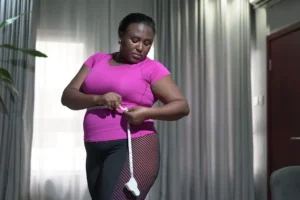The month of Ramadan is a holy month in which Muslims fast. Maintaining a balance between work productivity and health is a challenge for many people who fast. Fasting is not an easy feat—you can only eat and drink before sunrise (suhoor) and after sunset (iftar). Throughout the day, you may feel lethargic, making exercise the last thing on your mind. However, some still maintain their workout routine during Ramadan, which can be beneficial if done correctly.
Ramadan is actually a great time to regulate or start a fitness routine, and it can even help with weight management. With limited time, energy, and motivation, you need to be strategic about your Ramadan fitness routine. What intensity to focus on, the best times to work out, and how often you should exercise are all key considerations.
Check out these practical tips to help you stay fit as a busy Nigerian professional during Ramadan.
1) Plan Work Wisely to Support Ramadan Fitness
During Ramadan, it is important to organize your work schedule effectively. Prioritize tasks that require the most concentration during periods when your energy levels are higher, such as after suhoor or before iftar. Proper planning ensures you have time for both work and fasting workouts without overexerting yourself.
2) Make Effective Use of Breaks for Better Weight Management
Taking short breaks can help you stay focused and refreshed. Use your break times to rest or engage in light relaxation techniques like meditation or short naps. Managing stress and energy levels effectively contributes to weight management and overall well-being during Ramadan.
3) Pay Attention to a Balanced Diet for Ramadan Fitness
During suhoor and iftar, focus on consuming nutritious, balanced meals. Eat foods rich in complex carbohydrates, protein, fiber, and vitamins. Avoid heavy, greasy foods that can leave you feeling sluggish and affect your Ramadan fitness goals.
4) Keep Your Body Hydrated to Enhance Fasting Workouts
Drink plenty of water during suhoor and iftar to prevent dehydration, which can affect your concentration and energy levels. Hydration plays a key role in sustaining energy for fasting workouts and maintaining physical performance.
5) Stay Physically Active with Light Fasting Workouts
Even while fasting, it’s important to stay active. Light physical activities such as stretching, walking after iftar, or gentle morning exercises can help maintain fitness without overexertion. Fasting workouts should be low-impact but consistent to support weight management.
6) Get Enough Rest for Better Ramadan Fitness
Your body still needs proper rest to function well. Ensure you get quality sleep to recover from fasting and maintain productivity. A well-rested body improves metabolism and supports Ramadan fitness.
7) Avoid Excessive Physical Activity That May Affect Weight Management
Avoid intense workouts that can drain your energy while fasting. Instead, opt for low-impact exercises to keep your body moving without excessive strain. This will help you maintain weight management without unnecessary fatigue.
8) Avoid Heavy and Fatty Foods That Can Impact Ramadan Fitness
Heavy and fatty foods can make you feel sluggish. Stick to meals that provide sustained energy without making you feel overly full or lethargic. Proper nutrition plays a crucial role in Ramadan’s fitness and weight management.
Best Low-Intensity Fasting Workouts for Ramadan Fitness
While fasting, low-intensity workouts are ideal. Strength training and light cardio can be effective, but high-intensity exercises should be done after iftar.
1) Bodyweight Training for Ramadan Fitness
You don’t need a gym to stay fit. Exercises like push-ups, squats, and lunges can help maintain muscle strength. You can also use household items like water bottles as weights for effective fasting workouts.
2) Walking for Weight Management During Ramadan
If you have access to a garden or stairs, a 30-minute walk is a great way to keep active. Walking improves circulation, helps clear your mind, and supports weight management.
3) Low-Impact Cardio for Ramadan Fitness
For a gentle workout, try a combination of low-impact exercises such as mountain climbers, jumping jacks, or modified HIIT routines with slower movements. These exercises support weight management while keeping energy levels balanced.
4) Yoga or Pilates to Enhance Ramadan Fitness
Yoga and Pilates are excellent for both body and mind. These exercises improve flexibility, posture, and relaxation, helping to reduce stress and improve overall Ramadan fitness.
The Best Time for Fasting Workouts During Ramadan
Choosing the right time to work out is crucial to maintaining energy levels while fasting.
1) Early Morning (Before Suhoor) for Effective Ramadan Fitness
Exercising before suhoor allows you to hydrate and eat afterward, which helps in recovery. A light workout can also keep you energized throughout the day and support weight management.
2) After Iftar for Safe and Effective Fasting Workouts
If morning workouts aren’t suitable, exercising after iftar is another good option. You’ll have replenished your energy and hydration, making it easier to complete a workout without feeling drained. This is the best time for moderate Ramadan fitness routines.
Conclusion
By following these tips, you can maintain both your productivity and health during Ramadan. A well-balanced diet, hydration, and strategic exercise can help you stay fit without compromising your energy levels.
Happy fasting to all Muslims observing Ramadan! May this month bring you blessings, health, and happiness.





